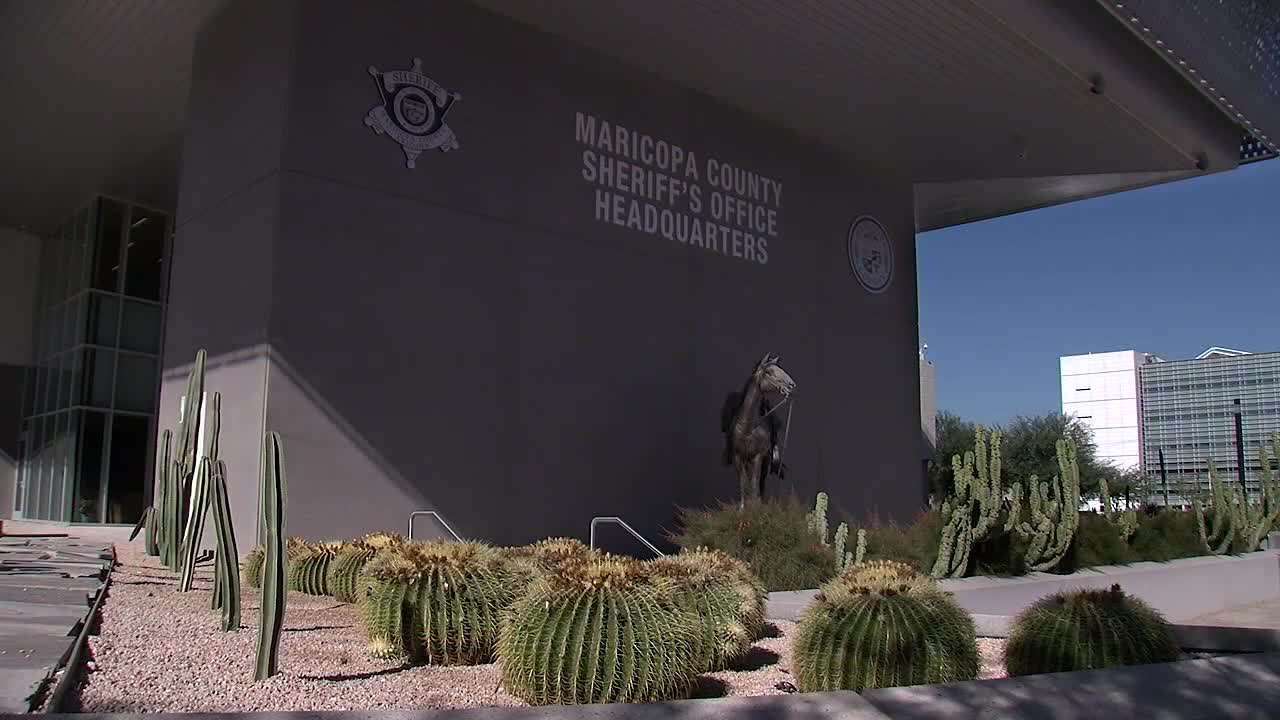PHOENIX — The Maricopa County Sheriff’s Office spent millions of dollars budgeted for compliance costs in a racial-profiling case over former Sheriff Joe Arpaio’s immigration crackdowns on things that had little or nothing to do with a court-ordered overhaul of the agency, according to an expert’s report.
The court-ordered audit released Wednesday criticized the use of compliance money to fund personnel costs and tasks, either in part or in full, that aren’t connected to the overhaul.
Victoria Lopez, the executive director of the ACLU of Arizona, which helped bring the Melendres case, called the audit's results "alarming."
"We should all be asking the question, then, how is it that the Sheriff's Office is complying and proceeding to achieve full compliance in this case?" she told ABC15.
The ACLU says the Sheriff's Office has misled the public about its spending.
"There are a lot of questions, and community members across the county should be concerned and alarmed and asking questions of the Sheriff's Office and county leaders about how they plan to remedy the very serious problems that this audit points to," Lopez said.
The audit also pointed out inappropriate spending: $2.8 million for surplus body-worn camera licenses that went beyond the court’s orders; $1.5 million in renovations in the relocation of an internal affairs office; over $1.3 million to buy 42 vehicles; and an $11,000 golf cart to bring staff from headquarters to the internal affairs operation, even though the department was leasing parking space at the latter location.
"There has been a lot of conversation about how much this case has cost, and this audit points to some really serious problems in the way that the accounting and the oversight of spending around this case has occurred," Lopez said.
For over a decade, Maricopa County taxpayers have picked up the bill for remedying constitutional violations found in a 2013 profiling verdict over then-Sheriff Arpaio’s traffic patrols targeting immigrants.
The racial-profiling case centered on 20 large-scale traffic patrols launched by Arpaio from January 2008 through October 2011. That led to the profiling verdict and expensive court-ordered overhauls of the agency’s traffic patrol operations and, later, its internal affairs unit.
"The reason we're in this litigation is because people's constitutional rights were violated," Lopez said. "We're talking about people who were unlawfully arrested, detained, separated from their families, lost their jobs, their homes."
The county says $323 million has been spent so far on legal expenditures, a staff that monitors the sheriff's department's progress and the agency's compliance costs. The county has said the total is expected to reach $352 million by July 2026.
The federal judge presiding over the case expressed concerns about transparency in spending by the Sheriff’s Office and ordered a review, leading to the blistering report. The report was prepared by budget analysts picked by the case's monitor.
The report concluded 72% of the $226 million in spending by the sheriff’s office from February 2014 to late September 2024 was either wrongly attributed or “improperly prorated” to a compliance fund.
Budget analysts who reviewed hundreds of employee records over roughly that time period found an average of 70% of all positions funded by compliance money were “inappropriately assigned or only partially related to compliance.”
Those expenditures were unrelated to or unnecessary for compliance, lacked appropriate justification or resulted from purposeful misrepresentation by the sheriff’s office, county leaders or both, the budget analysts wrote.
Sheriff Jerry Sheridan’s office released a statement saying its attorneys are reviewing the report to identify areas of common concern and any findings it may dispute. Sheridan, who took office this year, is the fourth sheriff to grapple with the case.
Late Thursday, Sheriff Sheridan provided the following statement update:
“We have found discrepancies within the Monitor's budget analyst report, which we are continuing to review and will address in the future. However, if we accept their report’s stated total expense of $62 million, it is unclear why the costs paid to the Monitor Team- totaling $34 million to-date (more than half of the reported expense) - and the legal expenses incurred over the past decade were excluded. These two significant and undisputed expenses were not included in the report.”
Raul Piña, a longtime member of the court-ordered Community Advisory Board created to help improve trust in the Sheriff’s Office, said the report raises questions about the accuracy of the department's self-reported data.
"And the concern is, if that's happening with financial reports, what is happening with traffic-report data?" he told ABC15. "If they're also saying to us the racial-profiling data is positive, we're making growth?"
Piña said he was surprised by what appears to be intentional misreporting of funds.
"So that is concerning, because it looks to be deliberate over time, spanning back to three sheriffs, if you really look at the details of it," he said.
Earlier this year, county officials ramped up criticism of the spending. They said the agency shouldn’t still be under the court’s supervision a dozen years after the verdict and shouldn’t still be paying such hefty bills, including about $30 million to those who monitor the agency on behalf of the judge since around 2014.
The report criticized Maricopa County and its governing board for a lack of oversight over the spending.
Thomas Galvin, Board of Supervisors chairman and a leading critic of the continued court supervision, said in a statement the board’s legal counsel is reviewing the report.
“The board has confidence in MCSO’s budgeting team and will respond accordingly,” he said.
Since the profiling verdict, the sheriff’s office has been criticized for disparate treatment of Latino and Black drivers in a series of studies of its traffic stops. The latest study, however, shows significant improvements. The agency’s also dogged by a backlog of internal affairs cases. While the agency has made progress on some fronts and garnered favorable compliance grades in certain areas, it hasn’t yet been deemed fully compliant with the court-ordered overhauls.




